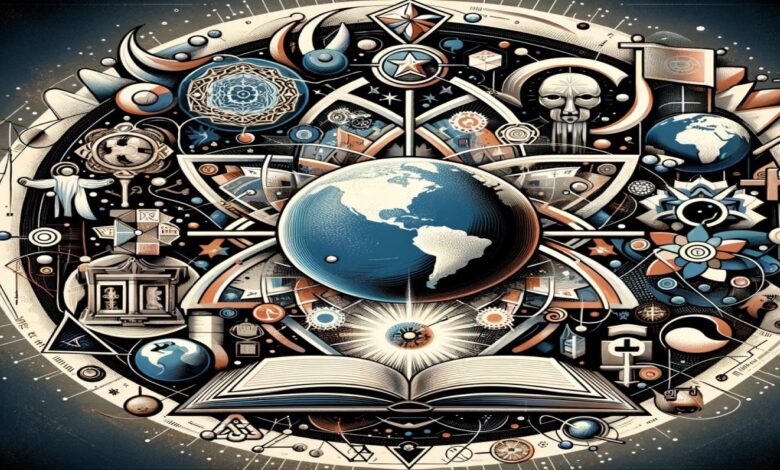Understanding Dogmák: A Comprehensive Overview

Dogmák, a term deeply embedded in the fabric of religious, philosophical, political, and cultural discourses, serves as a cornerstone for various belief systems worldwide. This article delves into the origins, applications, and significance of dogmák, offering insights into its pervasive influence on human thought and society.
The Dynamics of Dogmák in Modern Society
As societies evolve, the dynamics of dogmák undergo significant transformation. In the modern era, the proliferation of information technology and the increasing interconnectedness of global communities have challenged traditional dogmák, forcing a reevaluation of long-held beliefs. This shift encourages a more pluralistic approach to understanding the world, where multiple viewpoints are recognized and valued for the depth and diversity they bring to the collective human experience. The resilience of dogmák in this context is tested as individuals and societies navigate the delicate balance between tradition and the necessity for adaptation in an ever-changing world.
The Future of Dogmák: Challenges and Opportunities
Looking ahead, the future of dogmák presents challenges and opportunities for human development. As critical inquiry and open dialogue become increasingly prevalent, the potential for dogmák to evolve in response to discoveries and perspectives grows. This evolution offers an opportunity for greater inclusivity and understanding across cultural, religious, and ideological divides. However, the challenge lies in ensuring that this transition respects the foundational aspects of existing belief systems while embracing the potential for growth and change. The ongoing dialogue around dogmák will undoubtedly play a crucial role in shaping the future of human society, highlighting the importance of fostering environments where questioning and learning are encouraged.
Origins and Definition
The concept of dogma originates from the Greek word “dogma,” meaning “that which seems to one, opinion or belief,” and has evolved through centuries from philosophical decrees to religious doctrines. Initially used in a context where philosophical teachings were considered absolute truths, the term now encompasses many unquestioned principles across different spheres of human activity.
Dogmák in Religion
In the religious domain, dogmák is the bedrock of faith, outlining the core beliefs and doctrines that followers are expected to accept without question. These can include the divinity of scriptures, the existence of a supreme deity, or the afterlife’s nature. Religious dogmák plays a crucial role in shaping faith communities’ practices, rituals, and moral guidelines, fostering a sense of identity and unity among adherents.
Cultural and Societal Impact
Beyond the confines of religion, dogmák influences cultural norms, political ideologies, and even scientific theories. Cultural dogmák, for instance, defines societal values and traditions passed down through generations, often without critical examination. In politics, dogmák manifests as foundational beliefs that guide the policies and practices of political entities, shaping governance and social structures.
The Role of Dogmák in Science
While science is built on evidence and inquiry, specific foundational theories and principles are accepted as dogmák until challenged by discoveries. These scientific dogmák guide research and understanding in various fields, from biology to physics, demonstrating the dynamic nature of knowledge and the ongoing pursuit of truth.
Challenging Dogmák
Questioning and challenging dogmák is essential for intellectual growth and societal progress. Critical examination of long-held beliefs encourages dialogue, fosters innovation, and can lead to the evolution of thought across all domains of human endeavor. This questioning process enriches individual understanding and promotes a more open, tolerant, and diverse society.
Adapting to Change
In today’s rapidly changing world, the relevance and application of dogmák are continually being reassessed. As new challenges emerge and societies evolve, the flexibility and adaptability of dogmák are tested. Engaging with these foundational beliefs thoughtfully and critically is vital to navigating the complexities of the modern era, ensuring that dogmák serves to guide and enrich human life rather than constrain it.
Conclusion
Dogmák, in its various forms, plays a pivotal role in shaping human thought, behavior, and society. By providing frameworks for understanding the world, dogmák offers stability and coherence to communities. However, the true power of dogmák lies in the balance between acceptance and inquiry, tradition and innovation. Embracing diversity in thought and challenging established norms are crucial for fostering a vibrant, dynamic, and inclusive global society.
You May Also Read: Behind the Headlines: Aaron Wohl MD Arrested – What’s Next?




